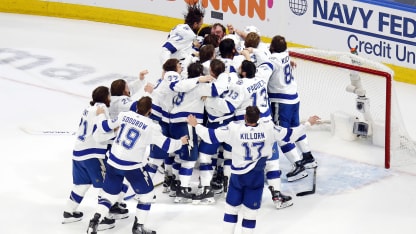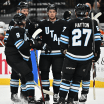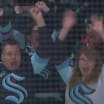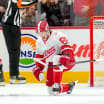"In a team sport, I truly believe that failure, you have to feel it before you can have success. It keeps you up at night, but it also drives you, and it almost, the fear of losing becomes greater than the joy of winning. We got it done, and it wasn't without failures along the way."
They showed their resolve was stronger than last season by eliminating the Presidents' Trophy-winning Boston Bruins in five games in the second round and a double-overtime win against the Islanders in Game 6 of the Eastern Conference Final that clinched their first berth in the Stanley Cup Final since 2015.
Virginia owned its past. The Lightning owned it by unlocking the secret: Healing the past and attacking a new opportunity.
"It all goes to the coach, it all goes to the leadership and how those leaders lead and whether they embrace and ingrain the mindset, the principles and how they take that forward," Gordon said. "Every great team will be tested on their victory march. They have to go through the training ground to see if they're worthy. They had to slay dragons."
It was one of many the Lightning conquered on a journey longer than any taken since the Stanley Cup became the NHL championship trophy in 1926. They waited five months to play a game. They were 12-3 in one-goal games during the postseason and 7-2 in overtime, playing more OT minutes than any team in NHL postseason history (221:14). They proved they were better by playing a heavier game, grinding out victories they couldn't when they were swept by the Blue Jackets the year before.
"We were finding our identity," Lightning defenseman Kevin Shattenkirk told NBC after winning the Cup. "Guys were still dwelling on that and anywhere we went, people were talking about the sweep against Columbus. And then once we realized we had a brand-new team here, lot of new faces … we looked at the University of Virginia men's basketball team and what happened to them and used that as a source of inspiration as well. Everyone to a man wanted to make this happen and had that hunger."
A 62-win team that failed got tougher and rode a core covenant to the second Stanley Cup title in its 27-season history and first since 2004.
"When I showed up, they were a team obviously looking for answers," Gordon said. "They were frustrated the year before, what happened and the results, and they wanted to create a new opportunity. I think that goes to the power of a coach ... you see the power of a coach with Jon Cooper, the power of an organization, the power of culture."






















